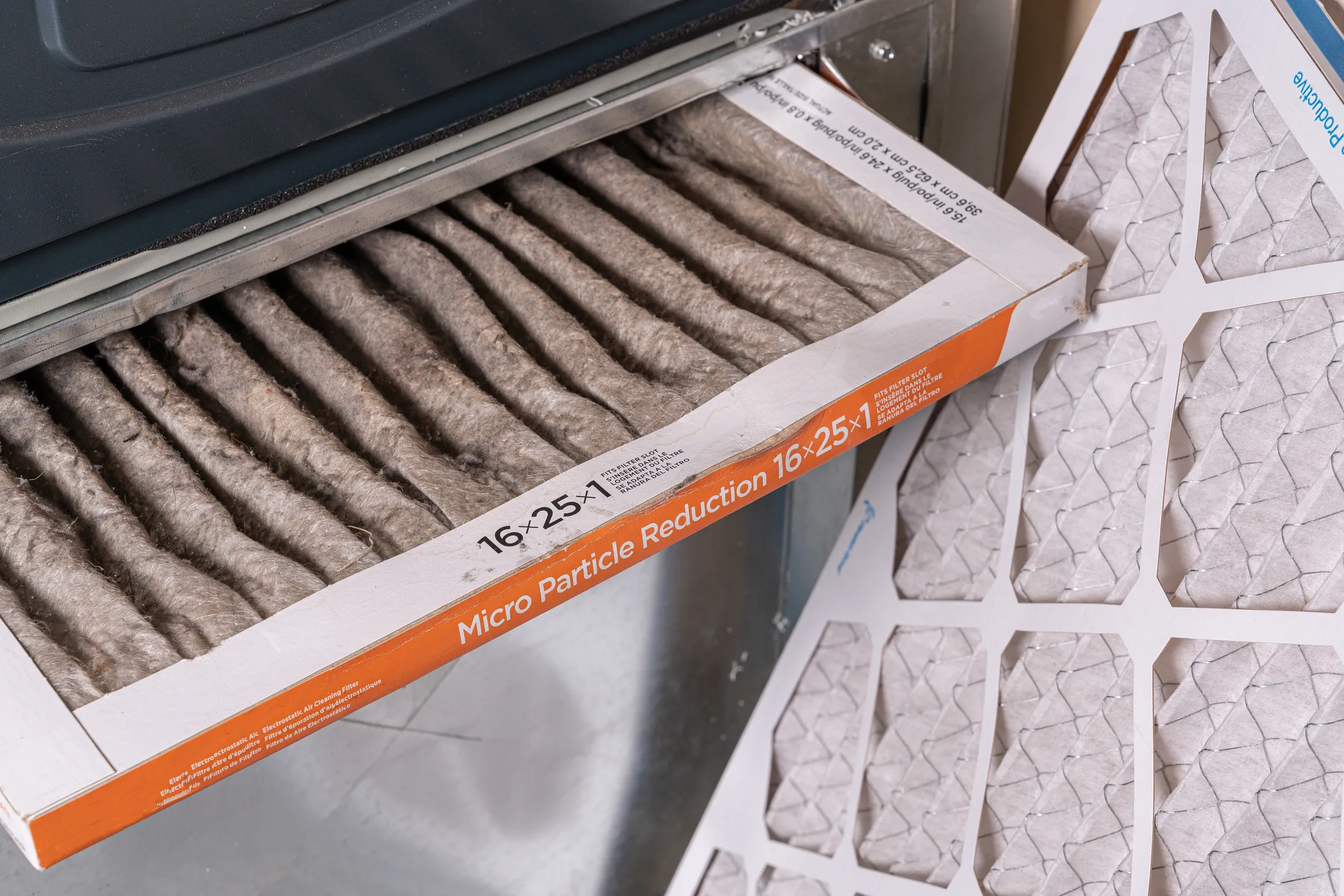Choosing the Perfect Air Filter for Your HVAC System
Maintaining clean, fresh indoor air is a top priority for comfort-minded homeowners and using the appropriate HVAC air filter plays a crucial role in providing it. Follow this guide to find the right filter type, size and MERV rating for your home’s indoor air quality needs.
When Should You Change Your Air Filter?
The first thing to consider is how often you should replace the filter. The most common suggestion for everyday residential filters is to replace them every 90 days for the standard home without pets. If you have a furry friend, shorten this to every 60 days. For homes with multiple pets or family members with allergies, you might want to replace the filter as often as every 30 days.
Selecting the Right Air Filter Size
Not all heating and cooling systems are built the same, so manufacturers make air filters to fit different-sized slots. Getting the correct size means a snug fit without air leaking past the filter. Here are three easy ways for you to identify the right filter size:
- Check the current filter for a label detailing the dimensions.
- Take measurements of the filter slot. Check the height, width and depth for a snug fit without forcing the filter into the opening.
- Refer to the HVAC manual, which should specify the filter size and type advised for your system.
Varieties of HVAC Air Filters
Several filter materials and designs are on the market, and each is tailored to different needs. Here are some popular types:
- Fiberglass filters are the most basic and economical option. Made from layered fiberglass strands, they trap larger particles that could damage the equipment. However, they don’t filter small particles that are harmful to breathe, so don’t count on them to deliver top-of-the-line indoor air quality.
- Pleated filters fabricated with light polyester or cotton folds offer a bigger surface area to trap more particles.
- Electrostatic filters implement self-charging fibers to capture and hold airborne particles. They come in both disposable and washable forms.
- HEPA filters offer impressive filtration. However, because they severely limit airflow, they are usually reserved for medical facilities, clean rooms and other commercial industries. If you prefer a HEPA filter in your residential HVAC system, collabourate with a heating and cooling technician to determine compatibility.
Comparing Air Filters with MERV Ratings
Minimum efficiency reporting value, or MERV, is the scale used to evaluate air filter performance. Ratings can be anywhere from 1 to 20, with high numbers signifying a filter’s ability to collect finer particles.
- MERV 1-4 are for the most basic filters, helpful for large particles like dust, pollen, lint and carpet fibers. They are meant for minimal filtration but are budget-friendly for simple applications without pets or allergies.
- MERV 5-8 are better suited for homes and commercial buildings where pet dander, mold spores, pollen and dusting aids need control. They balance cost and filtration for average needs, making them a favored option among homeowners.
- MERV 9-12 are designed for filters that can capture legionella, humidifier dust, auto emissions and more. They provide superior air quality to help alleviate allergies or mild asthma symptoms.
- MERV 13-16 are viewed as top-of-the-line filters for residential use. They’re the standard choice in hospitals and any other industries where pure air is necessary. These filters can capture bacteria, tobacco smoke and even some virus particles.
- MERV 17-20 are reserved for HEPA filters, which capture roughly 99.97% of particles down to 0.3 microns in size, such as lead dust, humidifier dust, asbestos fibers and other incredibly small particles.
How to Make Your Selection
When figuring out which type is the ideal home air filter, focus on these factors:
- Household needs: Pet owners, people with allergies or asthma, and homes in dusty or high-pollution environments may do best using a filter with a greater MERV rating.
- System compatibility: Before upgrading to a filter above MERV 12, make sure your HVAC system can handle it without compromising airflow.
- Filter thickness: Filters that are 4 to 5 inches thick usually work longer and offer stronger filtration than standard 1-inch filters. Just make sure your system is capable of using that size filter.
- Cost vs. benefits: Premium filters cost more up front but need replacement less often and provide healthier indoor air quality. Try to consider all the potential long-term savings and health benefits when deciding.
- HVAC professional’s advice: The best way to feel confident in your decision is to speak with an HVAC technician who will provide trusted advice based on your home’s system and air quality goals.
Breathe Your Best with Enercare Winnipeg Supply
If you’re looking for a better air filter, let Enercare Winnipeg Supply help you make the perfect selection. We can install high-efficiency air filtration systems to better protect your HVAC equipment and alleviate asthma and allergy symptoms. We take pride in improving the health of your life and comfort with help from our personalized, professional services. For assistance with choosing the right air filter or other HVAC needs, please contact Enercare Winnipeg Supply today.



